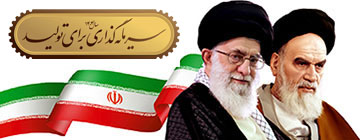BAHREGAN DISTRICT
This region is close to city of Imam Hassan in Bushehr Province. It is located between Genaveh and Deylam Ports, that is to say 40 kilometers to the northwest of Genaveh and 28 kilometers to Deylam Port.
Oil production started for the first time in this region when the exploration of oil in the Persian Gulf in the mid-1950s by SIRIP a joint venture between NIOC and AGIP succeeded. Geographical Information Bahregan District
City of Imam Hassan or Bahregan Port is located 40 kilometers, northwest of Genaveh and 28 kilometers to Deylam port at 29˚ 50’N and 50˚ 17’E.


Climate
Bahregan has hot and humid weather. The temperature of this port in the hottest month of the year is about 40 degrees centigrade (August) and in the coldest month of the year is about 8 degrees centigrade (December).
The maximum humidity in Bahregan is 67 percent in December and its minimum humidity is about 46 percent in May.
Ecosystem
The trees of this area are mostly tropical and have tiny and thorny leaves with deep roots; most of their roots are 10 meters long. Palm is also grown locally. Domestic animals such as camels are seen mostly in deserts of this district; moreover, in the Persian Gulf and Bahregan's surrounding waters there are many marine animals such as shrimp, various sharks, dolphins, turtles, crabs, and various types of fish.
This oilfield is located 97 kilometers of Bahregan District. This oilfield had 14 wells at the beginning and its installations were destroyed during the Imposed War.
When the war was over, onshore and offshore installations of the field were temporarily reconstructed. Then, the development project and reconstruction of Nowruz Oilfield began in the form of buyback contract. This contract included: drilling 17 new wells, one drilling platform for production, and one well and one accommodation platform. When the project was completed in the first half of 2005, the daily oil production capacity was 90,000 barrels. The produced oil is transferred to Sorush Oilfield via a 22-inch pipeline and after the final treatment, it is stored into the Soorena, floating storage unit (F.S.U.) with a capacity of 2.2 million barres of oil.


This oilfield is located 97 kilometers of Bahregan District. This oilfield had 14 wells at the beginning and its installations were destroyed during the Imposed War.
When the war was over, onshore and offshore installations of the field were temporarily reconstructed. Then, the development project and reconstruction of Nowruz Oilfield began in the form of buyback contract. This contract included: drilling 17 new wells, one drilling platform for production, and one well and one accommodation platform. When the project was completed in the first half of 2005, the daily oil production capacity was 90,000 barrels. The produced oil is transferred to Sorush Oilfield via a 22-inch pipeline and after the final treatment, it is stored into the Soorena, floating storage unit (F.S.U.) with a capacity of 2.2 million barres of oil.
This oilfield is located 55 kilometers, west of Bahregan District. Hendijan Oilfield has 9 wells on satellite platforms. The oil produced from this field is transferred to Bahregansar offshore complex via 10 kilometers of 10 two 12-inch pipelines. Then, after mixing with the Bahregansar oil, it is Pumped to Bahregan.


This oilfield is located 56 kilometers, west of Bahregan District. It includes a main platforms and 7 satellite platforms, with 12 wells.
The oil produced from Bahregansar platform is transferred to onshore installations of Bahregan District for treatment and storage by a 16-inch pipeline. This platform was frequently bombarded by Iraqi forces during the Imposed War.
When the war was over, the field was temporarily reconstructed. Reconstruction of onshore and offshore installations began after war and has been completed.


